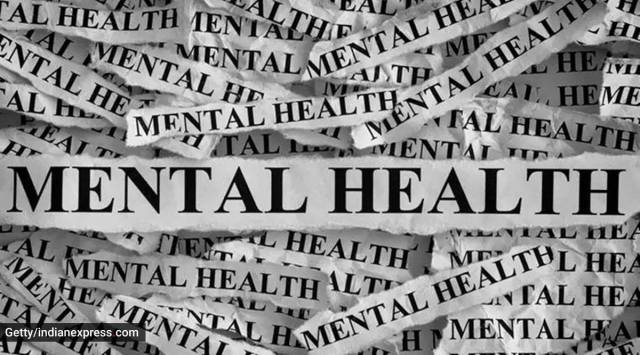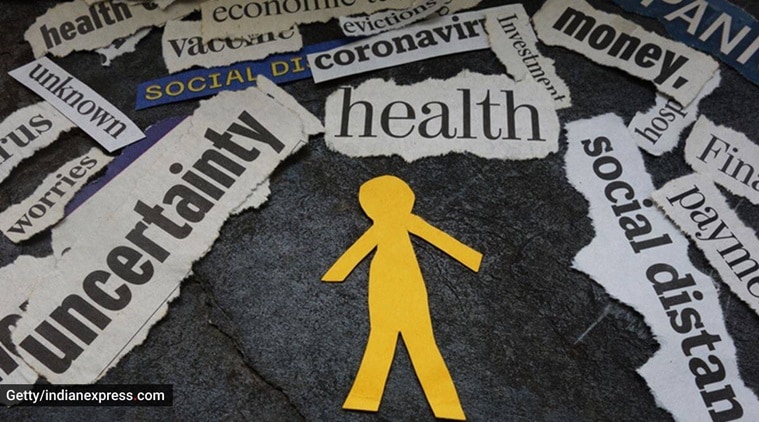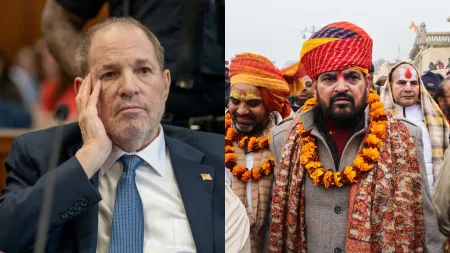- India
- International
Building a supportive environment for mental healthcare in India
The alleviation of mental health challenges cannot be left entirely to the hands of mental health professionals
 Our mental health impacts practically every aspect of our life. (Photo: Getty Images/thinkstock)
Our mental health impacts practically every aspect of our life. (Photo: Getty Images/thinkstock)“What will they say?”
The worry of ‘what others might say’ has been an ever-present barrier in the paths of people wanting to do anything freely.
Despite the passage of time leading us now well into the third decade of the 21st century, this pervasive mindset remains and creeps into the simplest of actions, preventing people from accessing opportunities, care and living as they want.
Mental illness, often an outcome of biological, social, economic, psychological and environmental stressors, is one of the leading public health issues.
Multiple people in the country face mental health challenges; yet they find it difficult to seek care.

There are several barriers to accessing mental health care, and apart from several structural impediments, social stigma around mental illness and the lack of awareness about mental health contribute significantly to the mental health care gap.
Societal stigma is often the result of labelling and the incorrect use of terminology in everyday conversations.
It also facilitates the inhibition, on the part of individuals suffering from mental disorders and their families, of acknowledging or accepting the condition and seeking the required mental health care.
Thus, treatable mental health conditions go untreated resulting in poor mental health, loss in the quality of life, and even leading to suicidal ideation and actual suicides.
Research finds a direct correlation between the experiences of discrimination and suicidality, suicide attempts from those facing mental health challenges.
The exact extent of stigma and consequential effects might never be quantified, but even with limited evidence, addressing it becomes the need of the hour.
Lack of awareness creates a fallacious understanding of mental illness – assumptions that only a visibly unwell person is the one that is ‘mentally ill’ and makes it difficult for others to accept their condition.
The defined image of a person with mental illness – bed-ridden, irresponsible, ‘crazy’, unsuccessful, prone to violence is often fueled by incorrect media portrayals. This takes away from the thousands who are thriving in other areas of life but continue to struggle with mental health problems.
Stories of Anthony Bourdain, Robin Williams, and Chester Bennington among many others stand testament to how successful people seemingly happy can struggle with mental health and even die by suicide.
 Experts attribute this to the constant pressure and burden of expectations that they face. (Source: Getty Images/Thinkstock)
Experts attribute this to the constant pressure and burden of expectations that they face. (Source: Getty Images/Thinkstock)
The alleviation of mental health challenges cannot be left entirely to the hands of mental health professionals; the severity and impact on daily life demands holistic care involving families, friends, workplaces and communities.
A non-judgmental attitude towards mental illness and a meaningful approach to mental health is possible only with creating behavioral change at the individual and societal level to address the treatment gap, as stigma mitigation stands at the very center of the mental health landscape.
Acceptance is the first and the most necessary step towards recovery, but the process becomes easier with the support of those around us.
Everyone must understand that people are more than their diagnosis and looking at people through the narrow lens of the dysfunction, brought about by their mental health condition, oversimplifies the complexity of human behaviour.
Encouraging those displaying symptoms to get screened is essential and would help develop help-seeking behaviour.
Mental disorders (like depression, anxiety) and suicides particularly affect young people, yet they may not always seek treatment or believe help is useful.
Channeling the energy of the youth in stigma reduction and awareness creation is imperative and educational institutions can become centers for the same, using local language and common experiences to teach students about potential causes of mental disorders, services available and how to interact with someone possibly having any mental illness.
Incorporating the information within the current educational curriculum may work to enhance mental health literacy.
Other strategies must include building mental health literacy and awareness about available services in the communities, incorporating an intersectional lens to understand challenges associated with social identities, discussing the harmful impact of unsolicited advice, identifying underlying behaviours and referring people to seeking care from formal institutions.
Only when we start accepting, beyond the shades of gender, class, and stigma, will we be able to build a nation ready to respond to mental health challenges adequately.
*The views of the author expressed here are personal and do not represent those of the organisation represented.
(Ms Shubhrata Prakash, Author, Mental Health Advocate; Dr Sukriti Chauhan, CEO, ETI)
📣 For more lifestyle news, follow us on Instagram | Twitter | Facebook and don’t miss out on the latest updates!
May 06: Latest News
- 01
- 02
- 03
- 04
- 05

































